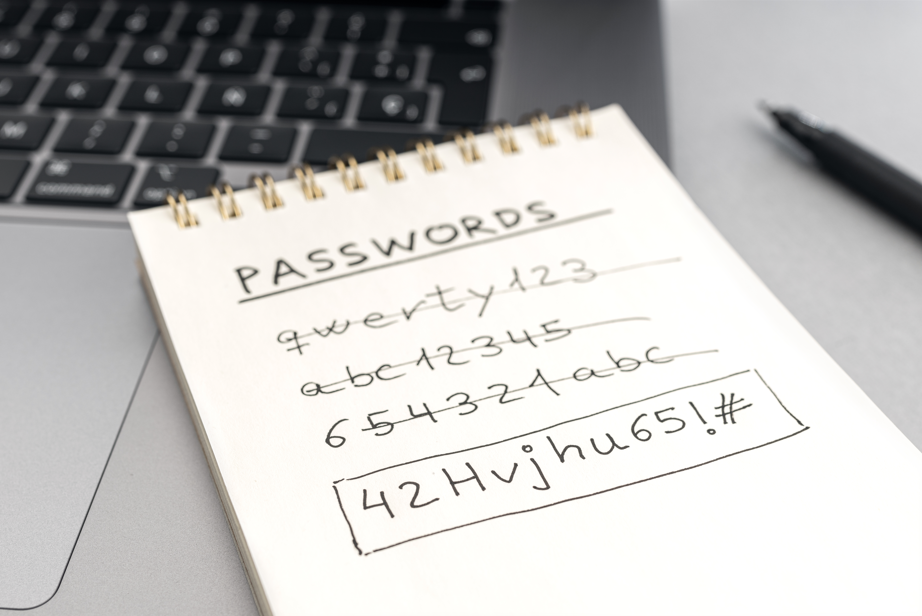What to Do If You’ve Been Scammed

You just responded to a text message that a package can’t be delivered to you because a customs fee needs to be paid. You click on a link in the message then enter your credit card information to pay the fee.
Then, you realize that the message you received was likely fake. You were probably scammed. Now what?
Americans lost more than $20 billion to scams in 2023, according to AARP and Javelin Strategy & Research. As large as that amount is, it likely doesn’t reflect the true scope of the problem because scams often go unreported.
There are several reasons for this. Victims often are scared, embarrassed or don’t know whom to call if they’ve lost money to scams. And that’s what scammers want—for victims not to take action.
If victims don’t take the proper steps, though, they have no chance of getting their money back. They also risk continued fallout from the scam, depending on what information they shared with thieves. That’s why it’s important to know what to do if you’ve been scammed.
Report the scam
Report a scam as soon as you discover it has occurred—ideally within 12 hours to 48 hours. There is no need to be embarrassed because anyone can become a victim of a scam. “Timing is critical,” says Karen Rossi, a senior financial fraud specialist with the Senior Protection Program at Council on Aging - Southern California. “The closer to when it has happened, the better.”
- Contact your financial institution’s fraud department. Financial institutions usually don’t have to reimburse victims if they authorized transactions, even if they made those transactions because they were deceived by a scammer. However, if you send money to a scammer, you might be able to stop or reverse the transaction if you report it immediately. If a scammer has your debit or credit card information, ask your financial institution to freeze or cancel the card.
- File a report with local law enforcement. Call the police or sheriff’s department to report the crime, or visit the department’s website to file a report online. You will need a report number as a record that the crime occurred to prosecute, Rossi says. Having a report of the crime also can help you contest fraudulent transactions if your identity is stolen.
- File a complaint with the FBI’s Internet Crime Complaint Center at IC3.gov if the scam originated online on a website, social media, chat room, email or similar source.
- Report identity theft to the Federal Trade Commission at IdentityTheft.gov. Create an account on the site to get a personalized recovery plan.
- Contact Adult Protective Services in your area if you are an older or vulnerable adult and need help reporting a scam. If you are living in a licensed long-term care facility, contact your state’s long-term care ombudsman for help.
When reporting scams and fraud to law enforcement, provide as much detail as possible. The more information law enforcement has, the better able it will be to build a case against scammers to stop their operations. “Law enforcement can’t prosecute without information,” Rossi says.
Limit the damage
As you report scams, you also need to take steps to limit the damage bad actors can cause if they have access to your personal or account information. “You have a responsibility to take care of your own finances,” Rossi says.
- Check all of your financial accounts for unusual transactions or signs of fraud. You don’t know what information the scammers had when they contacted you, Rossi says. So they might have more access to your accounts than you realize. Using a service such as Carefull can help you keep constant tabs on bank, credit card and investment accounts and alert you to unusual transactions.
- Change your passwords for any accounts that were compromised. If you use the same password for all of your online accounts, create new passwords for each account. A password manager such as the one included with Carefull can make it easy to create strong passwords and store them securely. Also, enable multi-factor authentication on all online accounts to make it more difficult for scammers to access them.
- Report fraudulent unauthorized charges by contacting customer service at the companies where your accounts are held. You typically aren’t liable for transactions that are made without your permission—such as a charge on a stolen credit card—if you report them in a timely manner. Take notes to document the name of the representative, when you reported the fraudulent charge and what steps you were told to take.
- Check your credit report for fraudulent accounts that might have been opened in your name. Visit Annualcreditreport.com to get free copies of your report from Equifax, Experian and TransUnion.
- Close any new accounts scammers opened in your name by contacting the companies where the accounts were opened and letting them know you were a victim of fraud. Ask the companies to send you a letter confirming the account wasn’t yours, that you aren’t liable for it and that it will be removed from your credit report.
- Freeze your credit reports with each of the three credit bureaus—Equifax, Experian and TransUnion—to prevent scammers who have your personal information from opening lines of credit in your name. It’s free to freeze your credit reports, and you can lift a freeze if you need to apply for credit.
Stay vigilant
Take these steps to quickly detect issues that can arise following a scam and to protect yourself from becoming a victim of other scams and fraud.
- Sign up for credit and identity monitoring. Credit monitoring services keep constant tabs on your credit reports and alert you to any changes, including new accounts that are opened in your name. Identity monitoring services monitor the Internet and dark web to detect misuse of your personal information. Carefull includes both credit and identity monitoring and up to $1 million in identity theft insurance to help recover your identity if it is stolen.
- Lock credit and debit cards when you’re not using them. Rossi says your bank or credit card’s app usually will have an option to quickly lock and unlock your card.
- Block spam calls and scam emails. Download your phone service provider’s spam blocker app to block unwanted calls. And Rossi says there are services such as Getcatch.ai that can detect and remove scam emails from Gmail accounts.
- Protect your devices. Update your computer’s antivirus software and run a scan if you gave a scammer remote access to the computer or clicked on links in suspicious emails. Turn on automatic updates to keep your computer’s software up to date. Make sure the Internet browser you use is the latest version. And run any operating system updates on your phone as soon as you get reminders to do so.
Try Carefull for free for 30 days to protect your accounts, credit and identity.
Recover
Scam victims often suffer emotionally as well as financially. “Take care of your mental health,” Rossi says. “If you think you’re falling into depression, ask for help. You’re not the only one this has happened to.” Contact a counselor, talk with someone at your place of worship or seek support.
Hiring an attorney might help if you want to pursue legal action. Your local bar association or Council on Aging might be able to provide a list of attorneys and organizations that provide legal services for free.

3 Steps to Safer Money,
Try it Free for 30 Days
Step 1
Start your free,
no-risk trial
Step 2
Connect the accounts and cards you want protected
Step 3
Stay alerted to any
unusual activity



.png)



